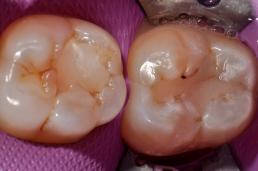
In this section:
Newsletter: August 2016
Newsletter archive
- 2019 newsletters
- 2018 newsletters
- 2017 newsletters
- 2016 newsletters
- 2015 newsletters
- 2014 newsletters
| Dental Council - August 2016 |

|
Message from the Chief ExecutiveGreetings all, Message from the Chief Executive
Greetings all, We’re more than halfway through 2016 and the year has been a busy one for the Dental Council. We have just completed our strategic planning day, which is a chance for our council members to get round the table and work through some of the projects our staff are working on and provide guidance, feedback and direction on where to go next. One of the major projects we are working on is the recertification review, which is one of our five strategic priorities. The Council has been gathering information and scoping the project for some time now. There is still work to be done in terms of getting enough information together to understand what kind of system will deliver the best outcomes for the public and for our practitioners. Once we have a clearer idea of the kinds of systems that we could use, we will be talking with practitioners and asking for your views on what you think works and doesn’t work with the current system, and where you think the priorities should lie. We hope to begin this consultation process later this year. Another of our strategic priorities is for the Dental Council to be a capable organisation. In line with this, we have recently undergone a restructure and experienced some staff changes as a result. In May, we said goodbye to some long-standing staff members—Corporate Services Manager Kevin Simmonds and Finance Officer Kim Hopkinson who had been on the Council staff for seven and 16 years respectively. We thank them both for their contributions to the Council and wish them all the best for the future. The restructure has seen us welcome several new staff, which has added depth and experience in the areas of policy, research, engagement, business planning and IT. For the past few years we have frequently required the input of consultants and short term staff appointments to manage the workload in these areas. Our new staff will help ensure we are able to deliver the strategic priorities agreed to by the Council. We are currently consulting on the Sedation practice standard and proposed changes to prescribed qualifications in oral surgery and oral pathology. I encourage you to go to our current consultations page and make a submission. Lastly, I was pleased to speak at the Dental Hygienists’ Association conference last week—it is always refreshing to talk directly with our practitioners. The sense there was that practitioners were positive about the Council's strategic direction and activities. Conference delegates were encouraged by the Association to participate in Council consultation to ensure their voice is heard - Council values and considers all submissions to inform its decision-making. |
Change to Council’s statement on the administration of botulinum toxin by dentistsThe Dental Council has recently amended its statement on the administration of Botulinum-A. The statement was issued in 2005 and set out the Council’s position on this advanced area of practice. Change to Council’s statement on the administration of botulinum toxin by dentistsThe Dental Council has recently amended its statement on the administration of Botulinum-A. The statement was issued in 2005 and set out the Council’s position on this advanced area of practice. The Council is aware that the 2005 statement—in particular, the wording referring to the nasolabial folds and/or perioral area—has become a source of confusion for some practitioners. The Council is undertaking a review of the use of botulinum toxin in general dental practice later in 2016, as part of the Council’s wider review of the policy on advanced and new areas of practice. This review will take into account advances in science and health care delivery methods, as well as the introduction of the Council’s standards framework, and how the Council’s statement fits within that. As an interim measure, the Council has agreed to amend the 2005 statement by removing references to nasolabial folds and/or perioral area, until it can carry out the complete review of its position on the administration of botulinum toxin. See the amended statement here. It remains the responsibility of the practitioner to ensure
Dentists are reminded that if they are administering botulinum toxin in their practice, they must comply with the requirements of the standards framework for oral health practitioners, the policy on advanced and new areas of practice and the amended statement on the administration of Botulinum-A. At all times, they must also work within their general dental scope of practice, which describes the practice of dentistry as “the maintenance of health through the assessment, diagnosis, management, treatment and prevention of any disease, disorder or condition of the orofacial complex and associated structures.” |
Current consultationsThe Council is currently seeking feedback on the following three consultations. Current consultationsThe Council is currently seeking feedback on the following three consultations.
Dentist and dental specialist 2016/17 APC fee and disciplinary levy consultationThe Council is now consulting on the proposed dentist and dental specialist 2016/17 APC fee and disciplinary levy, due to come into effect on 1 October 2016. Feedback is invited by 5pm, Thursday 18 August 2016—please note the shorter consultation timeframe, as the 2016/17 budget has previously been consulted on.
Proposed changes to prescribed qualificationsThe Council is consulting on several proposed changes to its prescribed qualifications. Most significantly, the Council proposes to gazette the following two programmes:
Some administrative updates to descriptions of the Australian prescribed qualifications are also proposed. Feedback is invited by 5pm, Monday 5 September 2016.
Sedation practice standardThe Council has reviewed its Conscious sedation for dental procedures practice standard and as a result, has developed an updated draft Sedation practice standard. We are now seeking your feedback on the proposals and the draft sedation practice standard. The submission period closes by 5pm, Wednesday 14 September 2016. |
Can we contact you?Are your contact details up to date? Can we contact you?Are your contact details up to date? We are going into the next round of APC renewals for dentists and dental specialists and will be contacting those practitioners whose certificates are due for renewal late next month. With that in mind, it’s a good time for you to check whether we have your correct contact details (both physical and email). We send the majority of our correspondence by email so please make sure we are using your preferred email address. You can do this by
If you work with other practitioners, please remind them to check we hold the correct contact details for them as well. Thank you! |
Changes to resuscitation trainingThe Certificate of Resuscitation and Emergency Care, or ‘CORE’, is the New Zealand Resuscitation Council’s training programme for health professionals, and a professional requirement for all oral health practitioners. Changes to resuscitation trainingThe Certificate of Resuscitation and Emergency Care, or ‘CORE’, is the New Zealand Resuscitation Council’s training programme for health professionals, and a professional requirement for all oral health practitioners. The programme has previously been offered at several levels but this year the Resuscitation Council has phased in two general resuscitation courses for health professionals—CORE Immediate and CORE Advanced. Dr Richard Aickin, Chair of the New Zealand Resuscitation Council says, “In many cases it will be clear to practitioners as to whether CORE Immediate or CORE Advanced is most appropriate for their training needs” He adds that for some the choice may be less clear, and accreditation bodies will need to consider which knowledge and skills in resuscitation would be expected of their practitioners. “With dentistry, the Dental Council will confirm the new requirements, and we are here to offer advice and support them in their decision”, says Dr Aickin. More information on the changes are available on the Resuscitation Council’s website. |
We want to hear from youThank you to all who participated in our online stakeholder survey earlier this year. We received more than 1000 responses. The majority of respondents were positive about the Council and how we communicate. We want to hear from youThank you to all who participated in our online stakeholder survey earlier this year. We received more than 1000 responses. The majority of respondents were positive about the Council and how we communicate. Of the survey respondents, 73 percent said they read the newsletter every time or most times it came out. We’re really happy to see such a high level of readership and hope to continue to improve the quality of the newsletter for you. Over the next few months we will be looking at how to improve the look and readability of the newsletter as well as develop its content. If you have any suggestions for improvements or ideas for content you would like to see, please let us know. You can send any feedback or suggestions to our newsletter coordinator at sophie.hazelhurst@dcnz.org.nz. |
Dental technicians and dental therapists neededThe Ministry of Health has recently published an advertisement seeking nominations/applications for health practitioner members for appointment to the Health Practitioners Disciplinary Tribunal. Dental technicians and dental therapists neededThe Ministry of Health has recently published an advertisement seeking nominations/applications for health practitioner members for appointment to the Health Practitioners Disciplinary Tribunal. Within the oral health sector, the Ministry needs applicants from the dental technician and dental therapist professions. The closing date for applications is Wednesday 24 August 2016. Applications must be made online via the Ministry of Health website—for application forms and further details, visit the careers centre here. |
Call for reports of medication errorsThe NZ Pharmacovigilance Centre (NZPhvC) is seeking reports of medication errors associated with documented allergies or adverse drug reactions (ADRs) during August. Call for reports of medication errorsThe NZ Pharmacovigilance Centre (NZPhvC) is seeking reports of medication errors associated with documented allergies or adverse drug reactions (ADRs) during August. Serious patient harm may occur if a patient receives a medication which they have a documented allergy or adverse reaction to. NZPhyC and the Health Quality & Safety Commission (the Commission) are working together to try to get a better sense of the current safety of our medication systems in primary care. During the month of August, we encourage reports of errors when a patient accidentally received, or almost received, a medication which they have a documented allergy or adverse reaction to. The NZPhvC invites you to submit reports (anonymously if preferred) to its Medication Error Reporting Programme (MERP) https://nzphvc.otago.ac.nz/merp/ The deadline for reports is 31 August 2016. At the end of this time period, a multi-incident analysis will be conducted by the NZPhvC to determine common themes and system weaknesses that may contribute to this particular type of error. These aggregated findings will be shared with the Commission’s Medication Safety Expert Advisory Group to consider possible safety solutions. For more information, or if you require assistance, please contact merpnz@otago.ac.nz. Your comments and suggestions for improvements are also welcomed at this address. During this targeted reporting period of August, hospital incidents should still be reported to DHB incident management systems in the usual way. The MERP is also open during this period for reports of other error types in primary care. Practitioners are reminded they are required to report incidents of suspected adverse reactions to the Medicines Adverse Reactions Committee—this can also be done through the NZPhvC website. |
Practitioner’s corner: dealing with complaintsIntroduction Practitioner’s corner: dealing with complaints |





